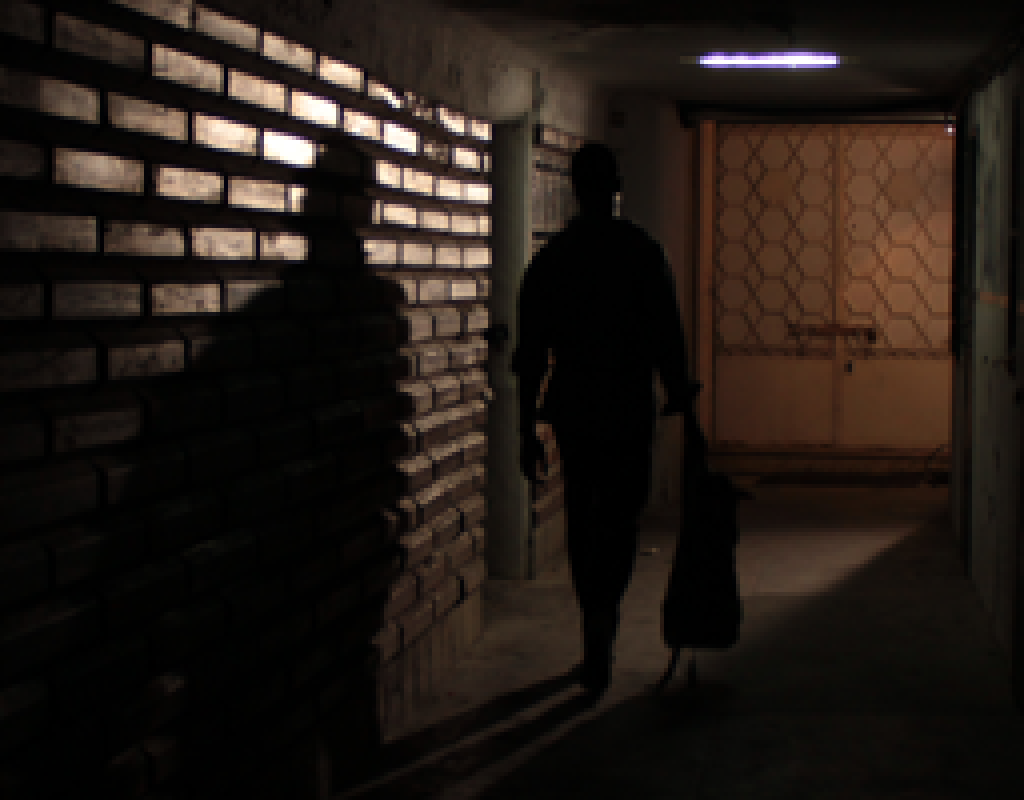The course elects the 6 key areas enshrined by the film industry and which reference counterparts schools also adopt: Screenwriting, Production, Directing, Cinematography, Editing and Sound.
The film course professors belong to a memorable generation of national directors, producers and scriptwriters that now, along with other professionals, participate in the adventure of making today's Portuguese cinema.
*all courses are taught in Portuguese
1) The first year (semester 1 and 2) consists of a set of curriculum units, compulsory for all students, providing a theoretical and practical training in the six reference areas, convergent, in terms of hands-on practice, i.e. teamwork, in the Film Production Seminar. Units of the Studies area, of historical and aesthetic, complete the curriculum.
2) The second year (semester 3 and 4), constituting the first moment of the student's choice of profile, subdivides into three branches (Image, Montage Sound), each of which integrates two specific training curriculum units, per semester; these students will combine, by their choice, curriculum units belonging to the other three key areas (Scriptwriting, Production and Directing.
3) The third year (semester 5 and 6), constitute the second moment of the choice by the student, subdivide again into the six branches, each of which integrate three specific training curriculum units, per semester; the student chooses a final specialization, of which the diploma will come to make mention.
INTERNATIONAL STUDENT
GRADUATION | BACHELOR
The General Board of the IPL has fixed the value of the international student's annual undergraduate or master's degree for the school year 2020/2021 at €6900, 00 (six thousand and nine hundred euros).
The programme offered at present, as a result of the Bologna Process, is based on the following principles:
a) To maintain a basis of accumulated experience, allowing for the understanding of sufficiently solid and tested “constants” in order to elect them as good practices;
b) To take the 6 areas, consecrated by the film industry and which similar schools have adopted – Scriptwriting, Production, Directing, Image, Editing, and Sound – as structural to the specializations offered; in regard to the curricular design, they are divided into two triangles; the first, focused on the design of a project with Scriptwriting, Production and Directing at its vertices, aims to develop the ability to creatively conceptualise, plan and direct a project; the second triangle, of a more performative nature, with its vertices appointed to Image, Sound and Editing, is based on the development of technical and artistic skills, to be applied in the making of film projects, at the different stages of production.
c) To declare that the first mission of a degree in Cinema, offered by an artistic school, is to marry these two aspects of training: the focus on project design (knowing how to conceptualise it), and the performance (knowing how to achieve it), articulating these in a flexible but permanent way, throughout the curricula, with the objective that students experience both, going from one to another, in a critically mediated way, with a historic, aesthetic and poetic perspective, aided by the knowledge and reflection provided by the area of film studies.
d) to guarantee that each student, within the limits set by the very nature of teaching, especially given the importance of teamwork, has the opportunity to progressively fine tune their profile and ultimate specialization, namely during two key moments.
Thus, the following structure is established:
a) The first year (semesters 1 and 2) includes a set of curricular units, mandatory to all students, providing a theorical and practical basis to all 6 areas of reference, converging, through group work into a Film Production Seminary each semester. Film studies units, related to history and aesthetics, complete the curriculum.
b) The second year (semesters 3 and 4) constitutes the first moment of choice towards building each student’s profile. The student will choose one of three areas of the “performance triangle” (Image, Editing, Sound), resulting in two curricular units specific to that area; additionally, the student will also choose one of the areas of the “design triangle” (Scriptwriting, Production, Directing), similarly resulting in two curricular units specific to said choice. Group work continues to be the converging point through the Film Production Seminary, while film studies units continue to provide a historical and aesthetical approach, guaranteeing the development of a critical and reflective dimension within each student.
c) The third year (semesters 5 and 6), which constitutes the second moment of choice and specialization in building the student’s profile, divides itself into 6 areas of choice (Scriptwriting, Production, Directing, Image, Editing and Sound), each of them including three curricular units specifically tailored to the area, each semester. Thus, the student effectively chooses their output profile, corresponding to the specialisation that the diploma will acknowledge, while complementing that training with optional curricular units specific to other branches, but nonetheless available to any student; the Film Production Seminary ensures the participation of each student in the process according to their chosen specialisation; in regard to film studies, the student will be provided with units pertaining to poetic development.


